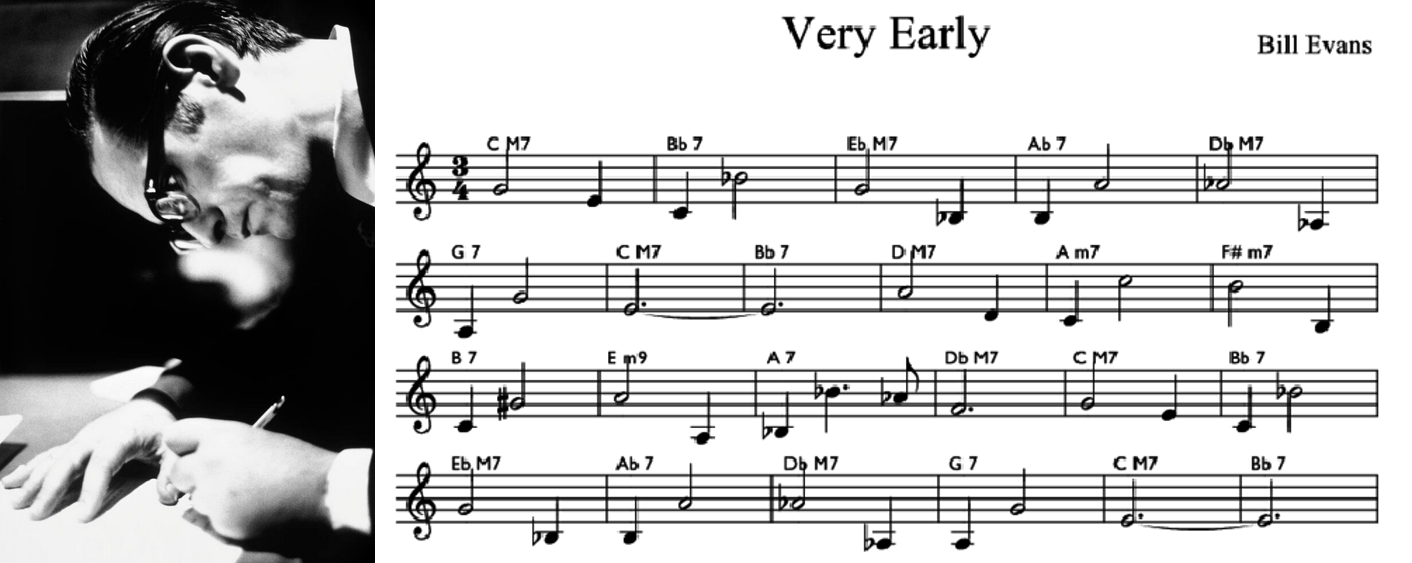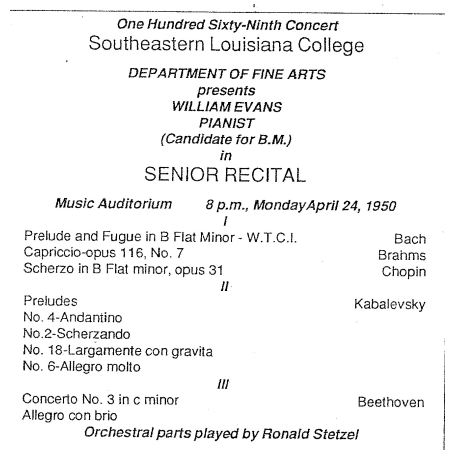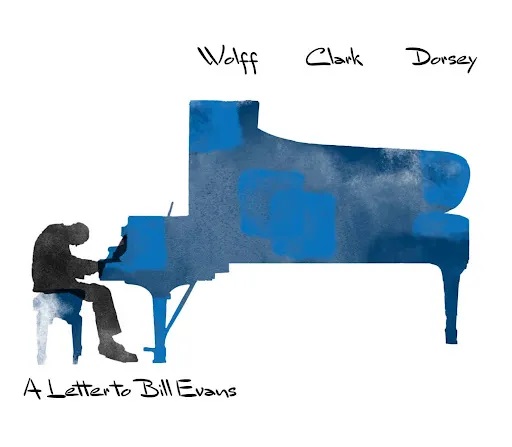
The Compositions of Bill Evans
When you do a deep dive of how Bill Evans approached compositions, you come to appreciate what a musical genius he was. This genius evolved through hard work, but was very deliberate and well-developed. Evans studied music with an intensity that cut across many dimensions. One of these dimensions was a serious respect for the American popular song. Evans himself acknowledged that he studied various compositions in detail and applied his own techniques against the basic structure of the composition. Some of these techniques included the use of substitute chords, rhythmic displacements, and contrary motions.
Another important dimension to Evans compositions is a grounding in classical music. For his senior recital in college, Bill Evans performed classical music (see image below). Once again, Evans acknowledged that his study of classical music went directly into his playing; most notably finger techniques which he picked up from listening to Bach.

Perhaps one of the most important elements behind the compositions of Bill Evans is creating room for improvisation. For Evans, it all starts with a basic structure. Every composition must have a basic structure that enables the artist to explore different lines, voicings, etc. Evans explained this concept in his interview with pianist Marian McPartland.
An important starting point for Bill Evans is to try and improvise at the piano. Even when playing a standard such as Some Other Time, improvisation can take over and create a new song, namely Peace Piece. Evans often explored different melodic and harmonic ideas to arrive at a new composition. A good example of this is the composition Time Remembered which runs through various harmonies connected through the melody.
In other instances, Evans would improvise in his head and arrive at a tune such as My Bells or Peri’s Scope. He often had a manuscript book nearby to capture his ideas. Evans would also work through a series of changes to arrive at the tune, such as Turn out the Stars and Waltz for Debby. Regardless of his approach, Evans preferred to stay within a certain style and not get too experimental. And his attention to detail was very evident in all his compositions.
We may never know the full extent of his compositions since it has been said that he sold some of his compositions to support his drug habit. The link below provides a list of known Bill Evans compositions:
https://en.wikipedia.org/wiki/List_of_compositions_by_Bill_Evans
Listen to a two-hour compilation of Bill Evans compositions on YouTube >
